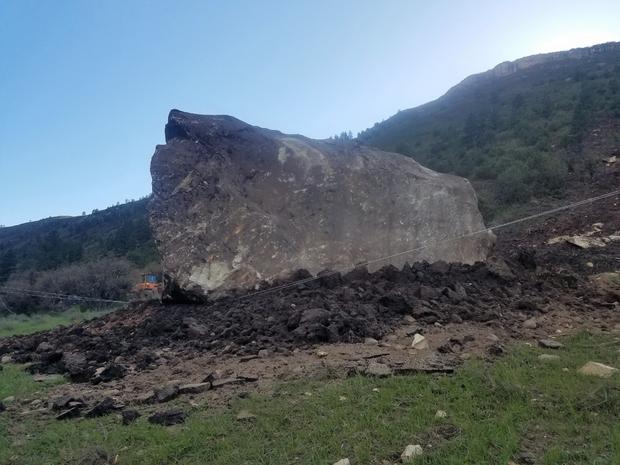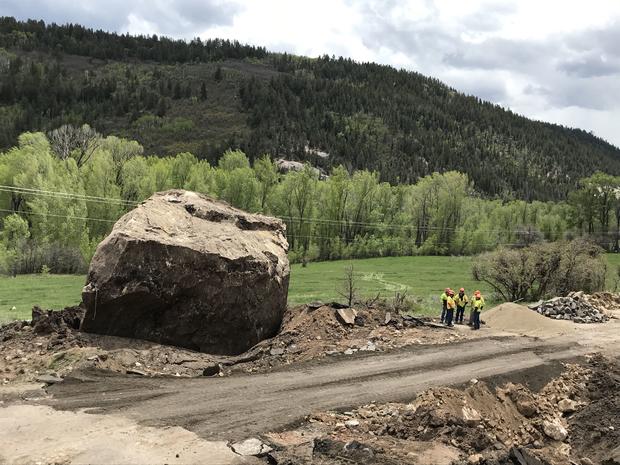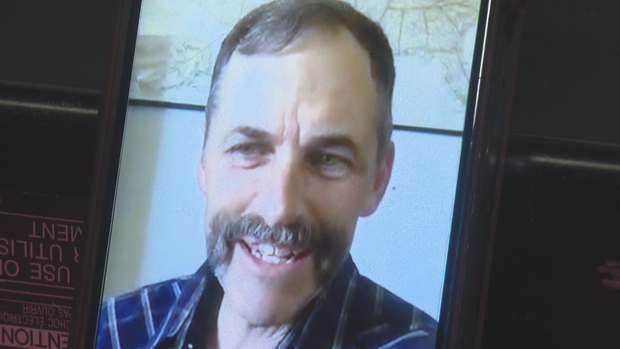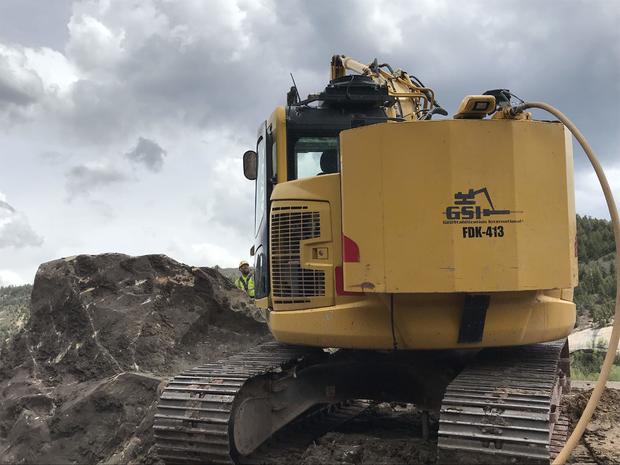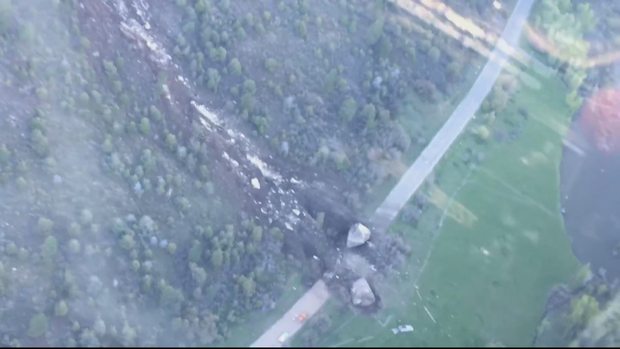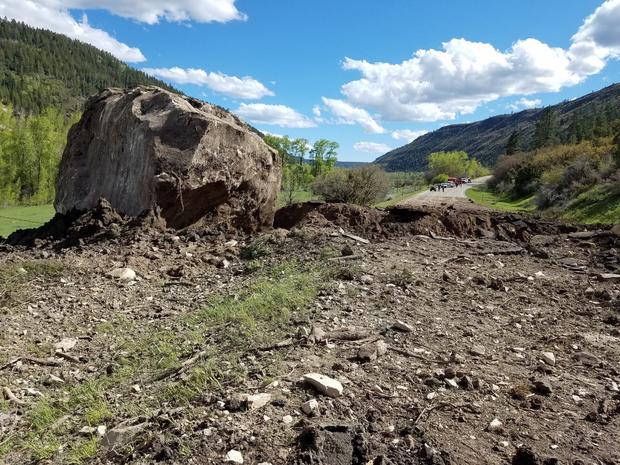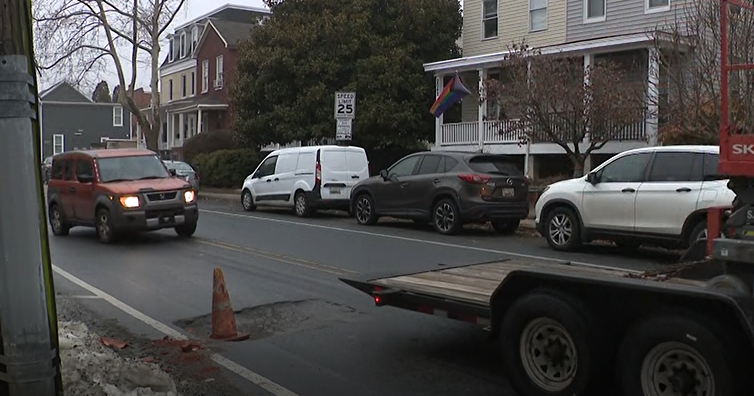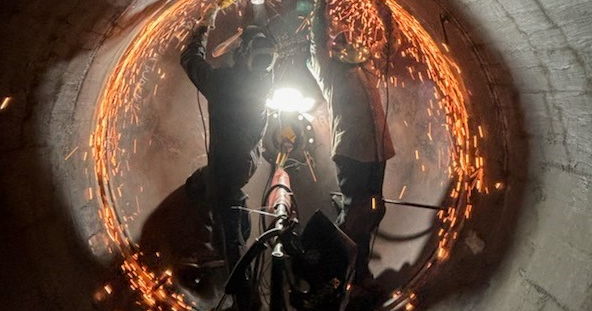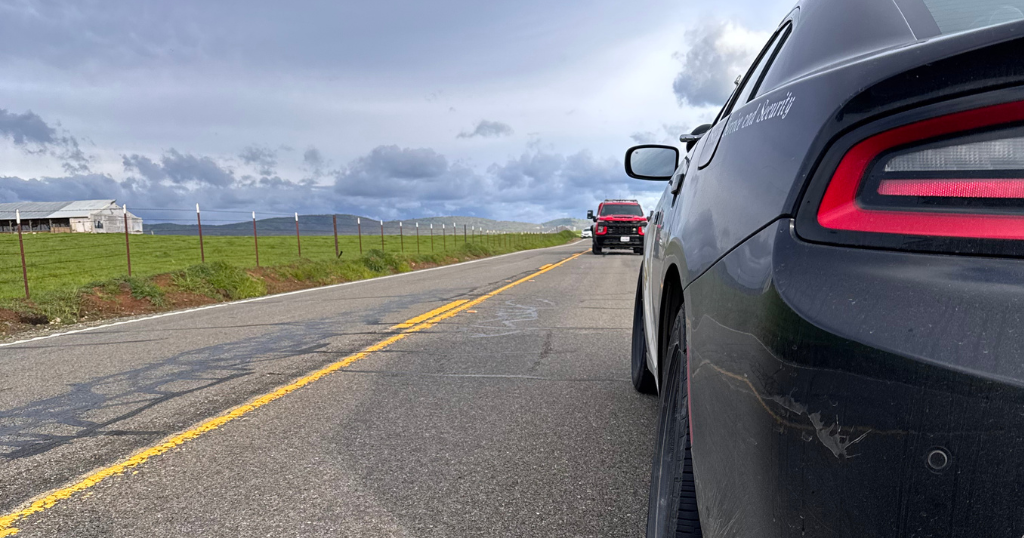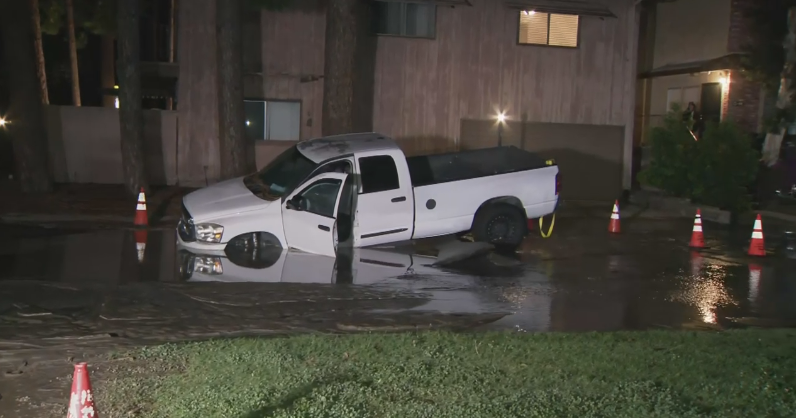'Truly Mind-Boggling': Boulders Weighing 10 Million Lbs. Close Highway
RICO, Colo. (CBS4) - Colorado Department of Transportation crews are currently working to remove two massive boulders that slid onto Highway 145 in Rico. It's a large task; the boulders weigh approximately 10 million lbs. combined.
"One's about 50x50x26 feet. So, pretty much the size of an average house," explained Mike McVaugh, CDOT Regional Transportation Director for Southwest Colorado. "Then the smaller one is 40x18x18 feet."
McVaugh said clean-up crews were dispatched to the area at around 4 p.m. on Friday. He explained the scenario to CBS4's Mekialaya White via FaceTime.
"They sent a plow truck out, they sent a supervisor out. They showed up on site and they were like, 'That's not going to work. We've got some really big rocks here,'" he said. "(The boulders) came off a cliff band about 850 feet above the highway."
Local rancher Eddy Lewis came face to face with it all. He lives between Dolores and Cortez, and said he was driving on the road, when he was suddenly stopped.
"I had hauled a couple of loads of cattle up the Dolores River about five miles beyond where the rockslide was. And on my return trip, they flagged me down," said Lewis.
That's when he learned about the rockslide.
"I expected an accident or something like that and they said no, there's a huge boulder that's fallen down into the middle of the road."
Lewis' immediate reaction was to fly his plane to the top and get a better view.
"I like to check things out and get some perspective on it. I thought it'd be neat," laughed Lewis.
From there, he was able to take some photos from the top of the cliff. It showed the 1,500-foot path the rocks took as they plummeted below.
Luckily, no one was hurt in the rockslide.
"I'm very thankful. It could have been devastating to any of us if it had fallen while we were driving along there," added Lewis. "It's truly mind-boggling that something that big came down."
McVaugh credited years of freeze/thaw cycles to causing the large slide. "There's a lot of water up there. There's fractures and these rock bands. Moisture gets in it, then at night it can freeze. Then, it expands and pushes those cracks open. Eventually, you're going to have a rock fall."
The area will remain closed indefinitely until crews can blast and break down the rocks and safely move them elsewhere.
